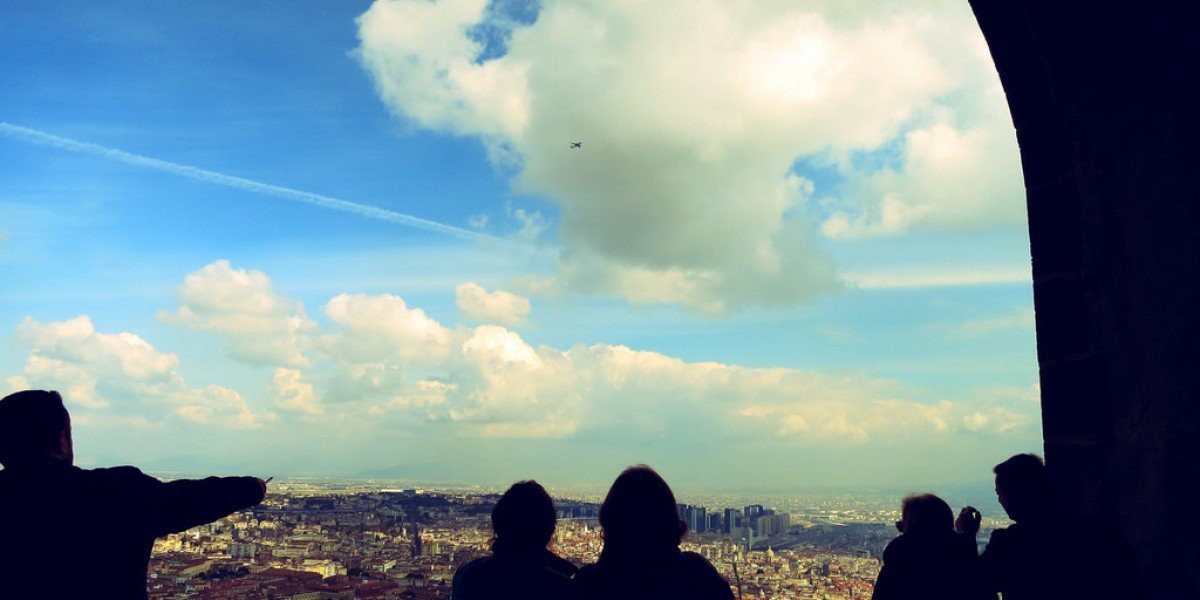
Travelling with your mind to understand what is happening, near and far.
Looking at the world from many points of view. This is the subtle thread that links together a number of different events this year at Festivaletteratura. Going from east to west, from north to south, in a continuous journey of discovery about what is happening around us. But also to find out where we have come from and perhaps even where we're headed. For many years now, the idea of life as a journey (with the authors Paolo Rumiz and Beppe Severgnini leading the charge) has been one of the leitmotifs of the Festival. Cities, places, horizons, civilizations, people. Near, far, strange, familiar. All of this and more will be featured in each of these events, allowing you to choose the steps on your own personal journey.
So why not start from the sea? “Il nostro mare” with Franco Cardini reminds us of the tragedies that are taking place every day in the Mediterranean. The "mare nostrum" of the Romans which has seen the rise and fall of each European civilization over the centuries. Cruising through the Mediterranean, you will reach Istanbul, the centre of Corrado Augias' story. Constantinople, the ruins of which are part of his physiognomy. Stories of the men and woman who founded, lived and transformed the city, changing its destiny. A story, above all, of an unexpected falling in love and a progressive, tireless discovery. And from Istanbul to Alexandria in Egypt in the blink of an eye. In the Biblioteca di testi with Elisabetta Bartuli, the Egyptian city is staged as a patchwork of sounds, scents and adventures. Luca Scarlini speaks of an ancient city and its cultural myths with Elia Schilton, a prominent actor in Italian theatre, who was born in that city.
We will travel through space and time to see what might happen given the recent decision from the United Kingdom to leave the European Union. Why should a country that up until recently controlled a global empire be so afraid of cooperation? Howard Jacobson and Jeanette Winterson will speak about the new culture wars and analyse the identity of the islanders living on the north-western edge of the continent. And what if Yugoslavia won on penalties against Argentina during the World Cup in Italy in 1990? Just a few months later, a dying state would implode, resulting in one of the bloodiest conflicts that Europe has ever seen. Adriano Sofri and Gigi Riva will speak about the strange connections between football and the dramas of recent history. Whether we're talking about Yugoslavia or the United Kingdom or Europe, we are also talking about citizenship. And, most of all, we are talking about the increasingly frequent attempts to dramatically overthrow this concept.
Christiane Taubira (the former French Minister of Justice, who opposed recent constitutional reform on security) asks “what would the world be like if all countries could expel the citizens they consider undesirable?”. Together with her will be Stefano Rodotà, another defender of individual rights who stands against the continued threats against them in the face of ongoing changes in society. And when society and its concepts and principles chance, war also changes. Every day, we see how the war against the so-called Islamic State proceeds and how it is completely different to those that have been fought before. Antony Beevor, military historian, will meet with the public of Festivaletteratura to discuss the complex link between demographic and sociological changes and strategic changes in military apparatus and intelligence.
What will our future be like? Alec Ross, a former adviser to President Obama and Hillary Clinton, helps governments and businesses to get to grips with developments in digital communication and new technologies and outline a picture - which is miles away from science fiction - of strategies to adopt to avoid being caught out unprepared by the next wave of progress that will affect our lives. But if we want to know where we're going, we need to know where we come from (and know it well). The meeting between Guido Crainz and Benedetta Tobagi is a unique opportunity. Unique because it retraces seventy years of the Italian republic. A history that, unfortunately, has already been forgotten by many. The anthropological change (which Pasolini had predicted) that has definitively changed the models and the balance of power. Through an analysis of pop elements, such as film, newspapers and sports events, Crainz and Tobagi will investigate the transformative processes that have affected Italy and Italians over the last seventy years, and how they have driven us to be who we are.
An important part of this study of our history will revolve around the words used in politics. Gianfranco Pasquino, professor emeritus of Political Science, tells us that how the words we use to talk about politics matter and how those who do not understand the language of politics understand little. Those who manipulate language must be refuted with clear, irrefutable words (and how many we need these days...). Because being able to listen to and talk about politics means being good citizens. While we're on the subject of politics, we need to address the women who rule over a large portion of the world. Hillary Clinton, possible future President of the United States; Theresa May, British Prime Minister; Angela Merkel, German Chancellor. Not to mention the female leaders in Poland, Croatia, Norway, Chile and others. But it has not always been this way. Women have been at the heart of the oldest type of prejudice, which has its roots in Greek philosophy, the Church, the revolutionaries and the Englightenment. Paolo Ercolani, who outlines the history of misogyny, and Giuliana Sgrena, who will focus her attention of the three great monotheistic religions, will meet to discuss this theme.
Bon voyage.



